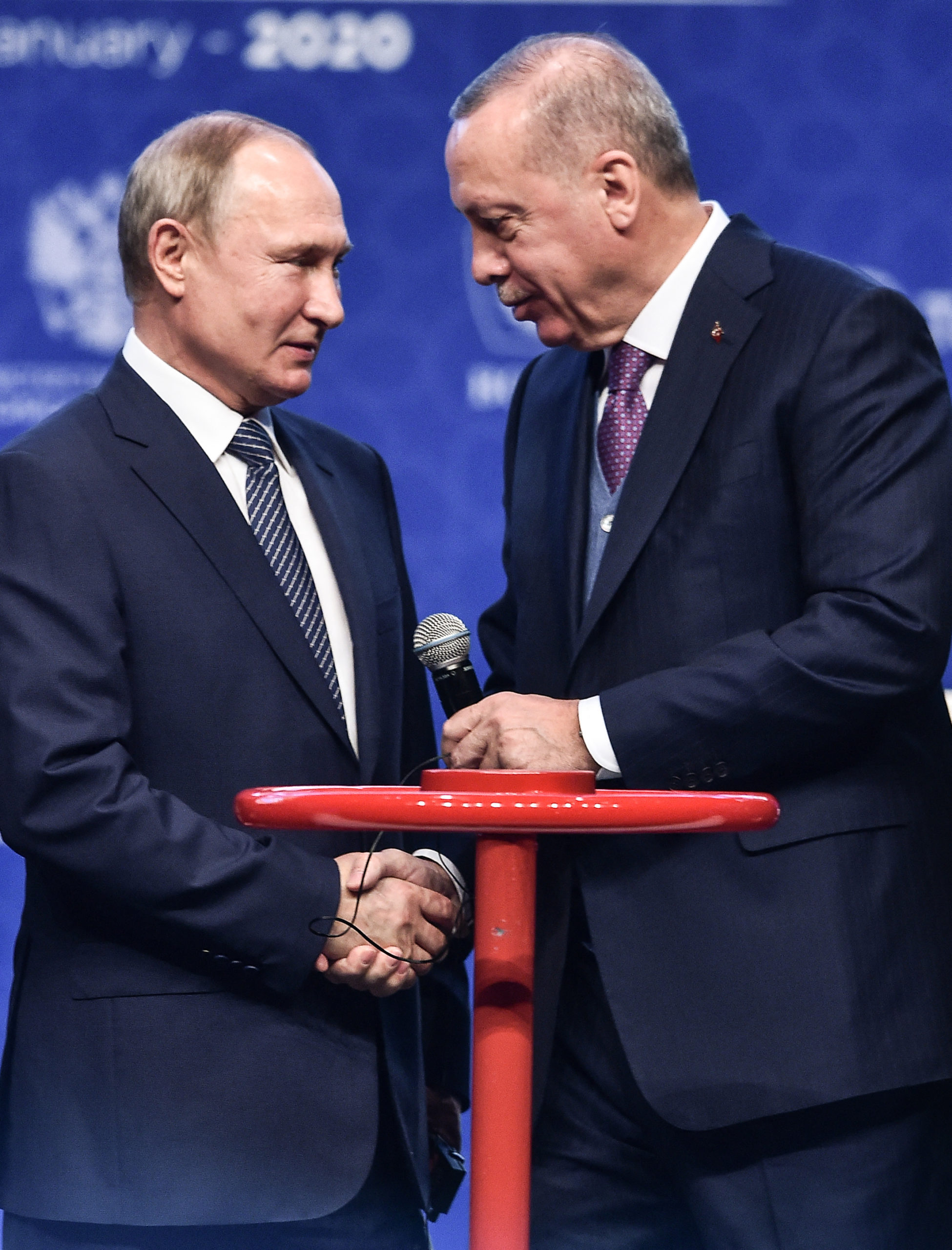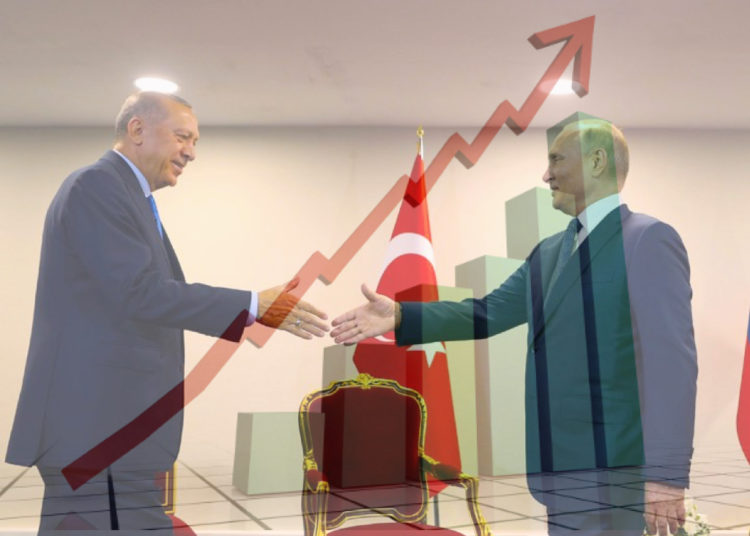Levent Kenez/Stockholm
At a June 5 meeting with the heads of international news agencies in St. Petersburg during a major economic summit, Russian President Vladimir Putin claimed that the Turkish economy stands to lose if Turkish authorities continue to turn to the West for financial support, according to Turkey’s state-run Anadolu news agency.
Drawing attention to the growing trade relations and volume between Turkey and Russia, Putin warned Turkish President Recep Tayyip Erdogan, whom he referred to as his friend, saying, “It seems to me that recently the economy management of the Turkish government has focused on obtaining loans, investments and grants from Western financial institutions.”
“This is probably not a bad thing. But if it’s related to the restriction of trade and economic relations with Russia, then the Turkish economy will lose more than it gains. I think there is such a threat,” Putin told Anadolu.
Putin was referring to the efforts Turkey has been making since June 2023, under the leadership of Finance Minister Mehmet Şimşek, to overcome financial problems by working with Western creditors. He mentions concerns raised by Western banks regarding allegations of the evasion sanctions on Russia through the use of Turkey as a route for trade.
NATO member and EU candidate Turkey previously announced it would not participate in the sanctions imposed on Moscow by the United States and European Union due to its dependence on Russia for natural gas and also because Turkey is a favorite destination of millions of Russian tourists.
However, many countries, including EU member states, have been evading sanctions by using Turkey as a conduit for exporting to Russia. Particularly, in trade conducted by land transportation, many Turkish companies continue to transport products from EU companies to Russia.

Nordic Monitor previously reported that in March 2022, President Erdogan made a controversial statement concerning Russian oligarchs to pro-government journalists on the way back from a NATO summit in Brussels, saying: “… If there are certain capital groups that want to come to our country and move their facilities here, we won’t close our doors to them. Our door is open to them as well.”
Erdogan’s call must have been heeded by Russian businesspeople. On September 22, 2023 the Turkish Union of Chambers and Commodity Exchanges (TOBB), the nation’s largest business group, announced its latest data, which showed that Russians had spearheaded the establishment of 592 new companies in Turkey during the January-August period. Predominantly structured as limited companies, these ventures have catapulted Russians to the top of the list of foreign investors creating new enterprises in the Turkish market.
Additionally, the trade volume between the two countries reached historic highs in 2023. As expected, oil accounted for the largest increase in Turkey’s imports from Russia. Moscow, which had difficulties in marketing the crude oil it produced after the imposition of Western sanctions, gave special discounts to China, India and Turkey, offering win-win contracts
Turkey has sold some of this cheap oil to EU countries. According to Politico, between February 2023 and February 2024, Turkey increased its oil purchases from Russia by 105 percent compared to the previous 12 months. During this period, Turkey’s fuel exports to the EU surged by 107 percent. However, this doesn’t imply that all fuel reaching the EU from Turkey originates from Russia. Turkey possesses refineries capable of processing almost 1 million barrels of crude oil daily. Additionally, Turkish companies are likely reselling some non-Russian fuel to the EU. The geographical proximity of several Turkish ports, coupled with import-export data, strongly suggests that significant quantities of Russian fuel have simply been repackaged and forwarded, Politico states.
The US administration has imposed sanctions on dozens of Turkish companies and nationals, accusing them of assisting Russia in evading sanctions and supporting Moscow in its conflict with Ukraine since 2022. On May 24, US Treasury Secretary Janet Yellen told Reuters that European banks face increasing risks when operating in Russia and that the US is considering strengthening its secondary sanctions on banks found to be facilitating transactions for Russia’s military efforts. The presence of these secondary sanctions has already deterred banks from engaging with Russia, but Yellen has expressed concern that Russia is still finding ways to procure goods necessary to enhance its military production, pointing to transactions through China, the United Arab Emirates and Turkey.
Ironically, on the same day Putin issued his warning to Ankara, President Erdogan approved an agreement with Russia under which Russia agreed to increase the annual quota for Turkish trucks carrying exports from 8,000 to 20,000 for transport destined to end in Russia and from 6,000 to 35,000 for transport to third countries via Russia.
On May 30 Putin cancelled a $17 million penalty imposed on a Turkish debt to Russia. The penalty constituted the remainder of a $726 million export credit extended to Turkey in 2017. According to Moscow, the penalty, which arose from Turkey’s delayed payment, was attributed to the disrupted trade between the two countries caused by Western sanctions.
Last year Russia postponed an approximately $20 billion natural gas debt incurred by Turkish public company BOTAŞ until after 2023.












